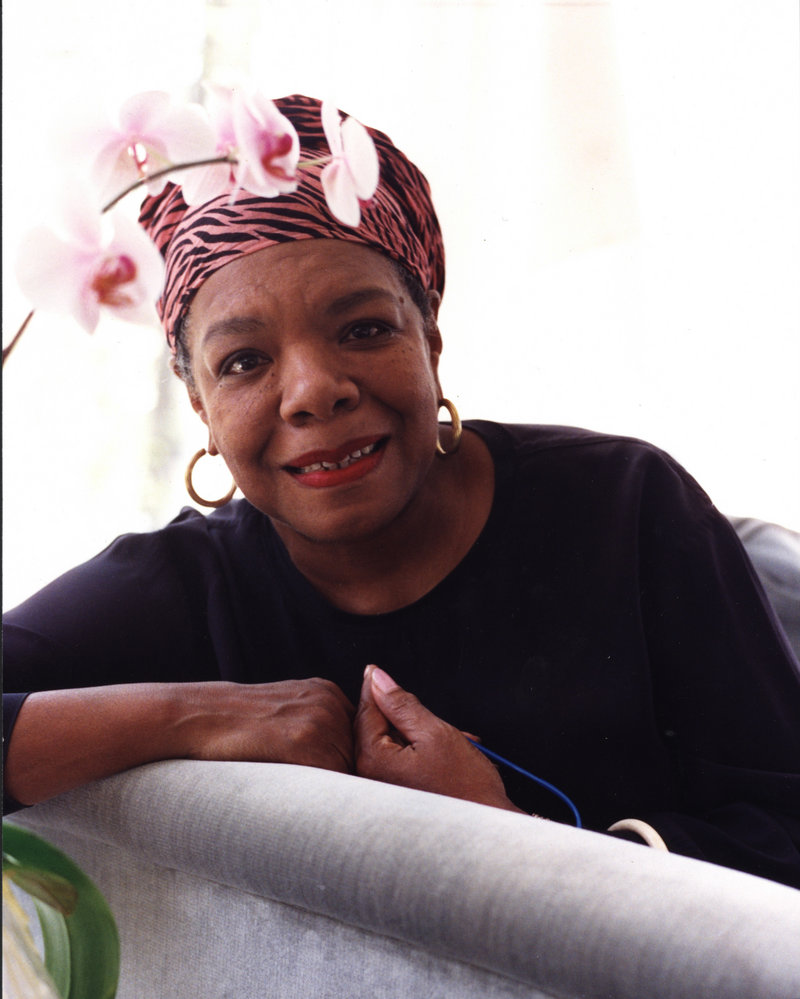Maya Angelou is one of those people who seems to be accomplished at everything she tries.
Writing. Poetry. Public speaking.
She has also been a teacher, an actress, an historian, a filmmaker and a civil rights activist. She wrote a poem for the inauguration of President Bill Clinton in 1993, and she’s won both the Presidential Medal of Arts and the Lincoln Medal.
Currently, she is a professor of American Studies at Wake Forest University and divides her time between Winston-Salem, N.C., and New York City.
At 82, Angelou continues to be a force with her words and her constant calls for people to be better to one another. She’s working on a poem about Phoebe Prince, a 15-year-old student at South Hadley (Mass.) High School who committed suicide in January after an apparent barrage of bullying and harassment from other students.
On Monday, Angelou will speak at the Augusta Civic Center during an event sponsored by the University of Maine at Augusta Student Government Association. She recently spoke to the Maine Sunday Telegram via phone.
Q: Why did you want to speak in Maine?
A: I used to have a very good friend, a writer, from Maine. He’s since died. We grew very close. He had written me a letter years ago. His letter was so interesting I decided to write back, and not the usual “Thank you for your letter, blah, blah, blah.” We corresponded for about 10 years, and he made me love Maine. Every season he described with such color and beauty and affection, that I began to feel a closeness to Maine. I’ve cut down a lot on lectures, but when I got the chance to do this, I thought, “I’d really like to see Maine.”
Q: You were in Chicago recently, speaking in the aftermath of some shootings involving young people. You must be asked to speak on behalf of a lot of causes, so how do you pick which invitations to accept?
A: I’m very concerned about the young people — the black ones, the Asian ones, the white ones, the Hispanic ones — all of them. They will give us a tomorrow. And we will deserve the tomorrow they give us.
I’m at work now on a poem; it won’t be finished for maybe six months. It’s about the young woman (Phoebe Prince) who committed suicide. When schools ask me to speak, I try to go and speak.
The brutality today is a pandemic, an epidemic of bullying, and cruelty, and road rage. We need to see what we are doing and why we are doing it. So much violence. People are, if not condoning it, at least being passive about it. People don’t want to get involved, but we are more involved when we turn away.
It is a great concern of mine, and as long as I can hold a pen, I’ll write against that kind of inhumanity. We lose some of our humanness when we lose our ability to be kind, to be encouraging. Some of us give it up too easily. If you are stupid enough to be cruel to another human being, then the best part of yourself is harmed.
Q: You said you’re coming out with a cookbook soon. That’s probably surprising to people, since you’re known for so many things but not really for cooking. So why a cookbook?
A: That’s my avocation, cooking. I used to drive, but I don’t anymore. But I can cook, and I can teach, and I can write.
Q: You’ve been so many things in your life — artist, dancer, poet, writer, activist. If you had to put down one occupation for yourself on a census form, what would it be?
A: Teacher. A teacher who can write.
Q: Your most recent book was called “Letter to My Daughter.” You have a son, but not a daughter, so how did you arrive at that title?
A: There are so many young women who have daughters. I gave birth to only one child, a son. But there have been many women who have allowed me to mother them. I thought of some things that young women ought to know about, things sometimes people don’t speak of. Nobody speaks to women about menopause, or if they do, it’s as a threat, but really it’s as natural as falling arches or bald spots.
And I wanted to talk to women about forgiveness and other things.
My next work will be a letter to my son. I have been a mother, and a grandmother, and a great-grandmother, and a niece, and a good friend. They (men) see the big pictures, but don’t always see the steps needed to get there.
Q: Quotations of yours seem to be everywhere on the Internet, and also in lots of people’s speeches. How do you feel about that?
A: It does please me. I’m grateful to be of use. Anyone who cannot be of use is useless. I will not be misused or abused, but I do want to be of use.
Staff Writer Ray Routhier can be contacted at 791-6454 or at:
rrouthier@pressherald.com
Send questions/comments to the editors.




Comments are no longer available on this story